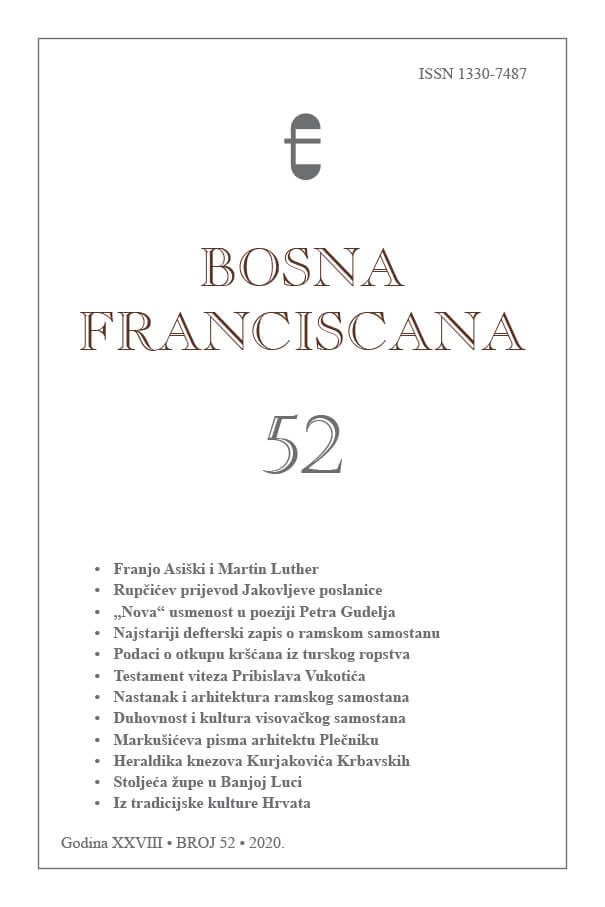„Nova“ usmenost u poeziji Petra Gudelja
New orality in poetry written by Petar Gudelj
Author(s): Ivana Čagalj, Tea-Tereza Vidović SchreiberContributor(s): Ivana Čagalj (Translator)
Subject(s): Theoretical Linguistics, Croatian Literature, Theory of Literature
Published by: Franjevačka teologija Sarajevo
Keywords: mythization; neotraditionalistic motives; „new“ orality; reductionism; repetition;
Summary/Abstract: The aim of this paper is to analyze the role and the intertwining of the auditive and the visual component in selected poetry written in verses and in prose by Petar Gudelj, as the basic determinants of the so-called „new“ orality. This concept of orality employed in the paper relies on Walter Ong’s concepts of the primary and secondary orality, bearing in mind the analyzed works were created in society which shows characteristics of both types of Ong’s orality, which is illustrated in motives, vocabulary and style of the selected texts. Basic premise of the paper is that poetic truth this writer for years has been trying to communicate is both presented and perceived primarily thanks to the auditive, which has had a two-fold impact in the context of literary creation of Petar Gudelj. Namely, the writer’s insistence on using the elements from oral literature, not relying on the current Croatian literary periods and movements, was one of the reasons contributing to his years-long marginalization on the Croatian literary scene. It is very hard to find a fellow poet in the Croatian literature who would use the same mechanisms in their verses, thus the creation of Petar Gudelj is in a way “self-generated”. What contributed to this poetic isolation was also the author’s personal isolation and change of his residence address. Namely, 35-year long absence from Croatia and his life and work in Serbia set him somewhere in between the two countries, in between the dominant literary movements of the region, in between the oral and the written. Searching for his roots, the voice in his poems tries to go beyond the boundaries, back to earth, the body, the language, back to ancient cultures, to the purest form of motives and figures, and it is in the sound, in the oral where he finds his place. If we accept the fact that relying on the auditive put obstacles on Gudelj’s literary path, we can say in the end it also had a positive impact on his works; the tendency towards the oral supplemented with strong visual imagery (often also tactile, olfactory, and gustatory) makes Gudelj a special poetic figure allowing readers to experience his verses in a direct and simple way, almost instinctually. This is the orality which is felt with the whole body, all human senses, this is the synesthesia of the karst which enables a special kind of notion both for the voice in the poem and for a careful reader.
Journal: Bosna Franciscana
- Issue Year: 2020
- Issue No: 52
- Page Range: 51-65
- Page Count: 15
- Language: Croatian
- Content File-PDF

